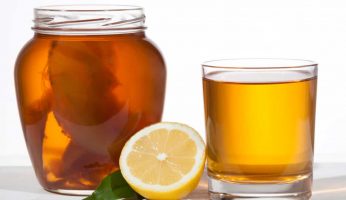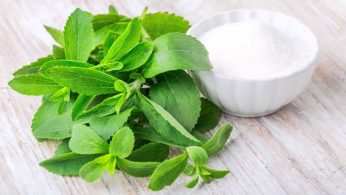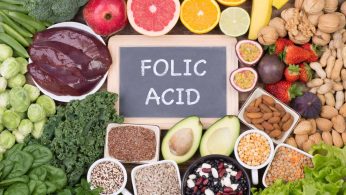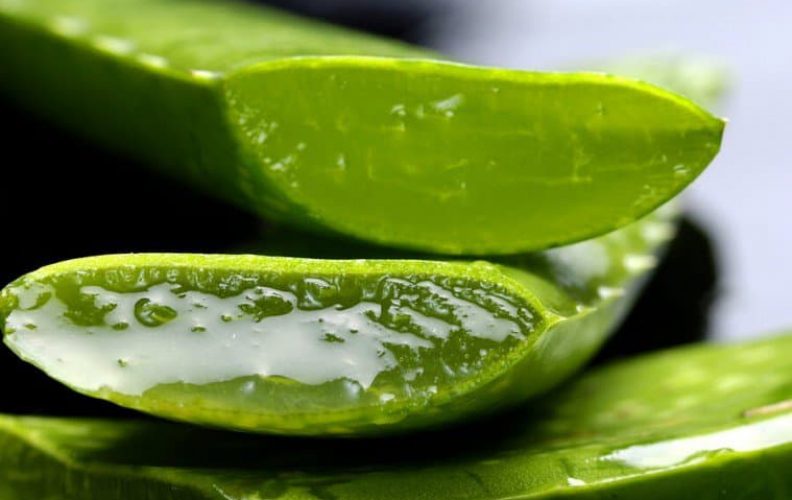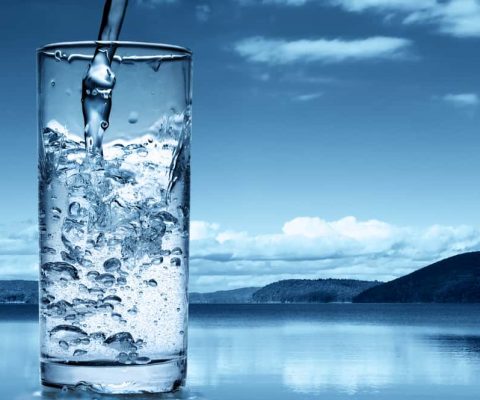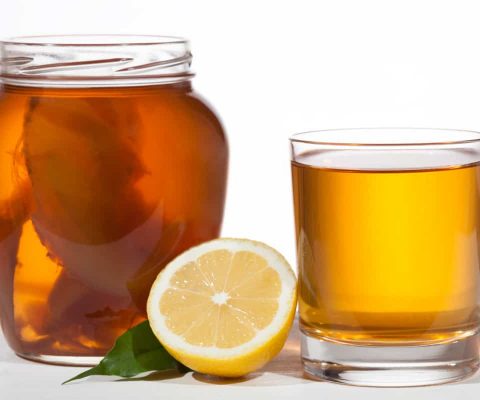Are Energy Drinks Bad for You?
Disclosure: We use affiliate links and may receive a small commission on purchases.
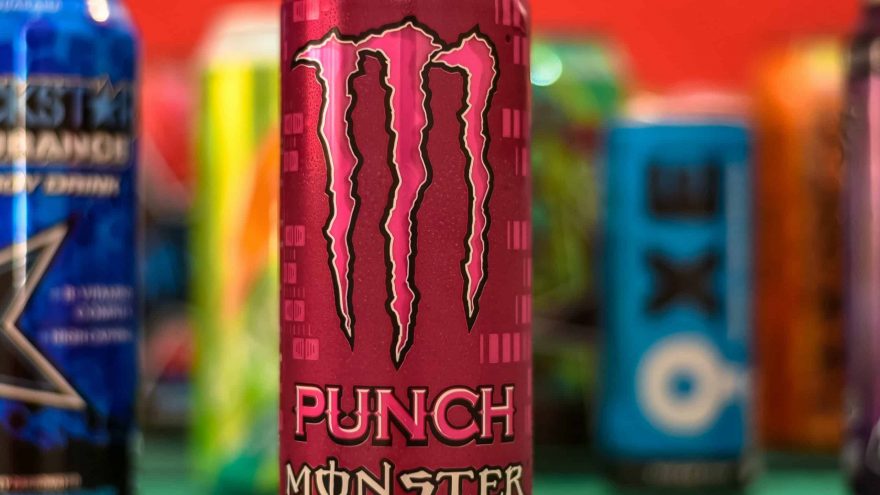 Are Energy Drinks Bad for You?
thefitbay.com
Are Energy Drinks Bad for You?
thefitbay.com
In today’s fast-paced world, we’re more convinced than ever to move quickly. From long commutes to long hours, human activity never seems to cease. When you’re feeling tired, it can be all too easy to succumb to pressure for a caffeinated beverage. These can help keep you alert, but are energy drinks bad for you? And if they are, why are energy drinks bad for you?
So many people use caffeine; it’s the most popular psychoactive substance in the world (1). But consuming energy drinks can have adverse health effects. Energy drinks can:
- Raise blood pressure.
- Raise pulse.
- Exacerbate an existing heart condition.
- Cause weight gain.
- Contribute to diabetes.
- Cause anxiety, restlessness, and sleep issues.
- Contribute to low birth weight and poor gestation in pregnant people.
Energy drinks can seem like a quick and hip thing to toss back when you’re feeling blue. However, what are you really putting into your body? Are energy drinks bad for you? We cover the most common ingredients and health concerns about the drink that dominates convenience store beverage coolers.
Quick Answers About Energy Drinks
Before indulging in any stimulant based product, it’s important to understand the possible health effects. Very quickly, let’s ask ‘How bad are energy drinks for you?” so the answers can be easily found.
What Gives an Energy Drink Its Energy?
How much caffeine is in a beverage that’s marketed to give you tons of pep and focus? It has to be a massive amount, right? After all, one of the main ingredients of energy drinks listed is caffeine.
Well, you may think that your energy levels are being raised by caffeine, but most energy drinks don’t have more caffeine than a cup of coffee. That first burst of energy provided by energy drinks is sugar. Even the energy drink Monster, with the lowest calories in popular brands, has more sugar calories than a glazed donut (2).
What Are the Ingredients?
Many energy drink brands use their own blends of caffeine, ginseng, and L-carnitine as a proprietary formula of an ‘energy blend.’ There can also be other caffeine or stimulant ingredients such as guarana, mate tea, taurine, and Ginkgo Biloba.
Energy drinks also include a large number of B vitamins, which your body DO need. However, most drinks use over 200 percent of your daily recommended intake. These vitamins don’t help to keep you awake or increase your energy immediately. There are no health benefits to over-consuming B vitamins.
Health Risks
If you’re young and healthy, you most likely won’t have an issue drinking one energy drink. That is good because two-thirds of energy drink consumers are 13–35 years old, and probably won’t feel ill effects after a single-use (3). The issues begin to arise if you’re a frequent user or have pre-existing conditions that can be exacerbated by a large amount of sugar and caffeine.
People with heart issues should take particular caution not to overindulge, as the combination of ingredients in energy drinks can increase the possibility of heart conditions (4).
Why Are Energy Drinks Bad for You?
Energy drinks contain some essential vitamins and minerals that our bodies cannot live without. They give us energy and, some say, they even taste good. Energy drink consumption is up, seeing an increase of 50 percent in sales over the past few years.
So why are energy drinks bad for your health? Truth be told, they’re at the top of the old food pyramid. It’s just sugar, sugar, and more sugar. Having one drink once in a while might be perfectly fine, but the continued use can cause weight gain and heart issues.
Overusing caffeine is also linked to health issues. While it’s one of the most used substances in the world, it’s still classified as a drug—a psychoactive drug at that (5).
Recap:
Though energy drinks contain some ingredients that are helpful to your body, the excessive amounts of sugar can do more harm than good. Many drinks don’t need FDA clearances since their ingredients are listed as “natural substances.”
What’s in an Energy Drink? An In-Depth Look at the Ingredients
Now that you know the basics of energy drinks let’s look at the ingredients in-depth and see how they can affect your heart, digestive system, cells, and overall health.
Caffeine
Caffeine drink consumption is at an all-time high (6). Coffee, tea, and of course, energy drinks are found everywhere. From a morning trip to the cafe to the hopping clubs at night, you’re likely to have had at least one caffeinated beverage today.
Caffeine works by blocking the areas of your brain that understand being ‘tired.’ Tiny bits of hormones called “Adenosines” are released when your mind needs a break (7). These bond with other areas of the brain that tell you to feel tired, so you’re in the mood for sleep.
Caffeine is an adenosine receptor blocker. This means that the caffeine acts as the bouncer at an exclusive club, guarding the door. The adenosine can’t bond with its receptor, or the obnoxious guy is turned away at the door. If the receptor can’t get that adenosine, it doesn’t feel tired.
Caffeine doesn’t ‘give’ you a boost of energy. Instead, it stops you from feeling tired in the first place. This is why drinking caffeine during extreme sleepiness may not help. While caffeine is a commonly used drug, it is not safe in large doses (8).
Energy Drinks vs. Coffee and Tea
A plain cup of coffee can have between 60-100 mg of caffeine, depending on how it was brewed (9). Espressos and cappuccinos can have over 100mg. Meanwhile, a Red Bull only has a little over 30mgs. If all you’re looking for is a simple caffeine bump, coffee or tea may be better for you.
But wait! That’s IF you follow the manufacturers serving sizes. These listed numbers can be disingenuous since the caffeine is based on only a 100-gram serving. Though Red Bull claims to use less caffeine in their ‘energy blend’ when you account for true 8 ounce serving sizes, they’re around the same amount.
Looking closer at the listings, you can see that a 16-ounce Red Bull can contain 147.6 mg of caffeine. Red Bulls seems to be one of the only brands that sell 16-ounce containers, though most are 8 ounces or 1 liter. Even a full can of energy drinks can have less actual caffeine than a standard cup of joe.
Combined with excessive sugar and other stimulants, energy drink consumption can give you a quick jolt of energy. Like any drug, caffeine can wear out the parts of your brain designed to deal with them. You’ll need higher and higher levels to function as you did before, which can lead to people abusing these kinds of beverages.
Guarana
Guarana is a large climbing plant found in the Amazon jungle. While it’s marketed as a separate ingredient from caffeine, this is a bit of a misnomer. The seeds are full of caffeine, almost two–four times that of coffee beans (10).
When it comes to ingredient listing and labeling, however, guarana is still considered an ‘herbal supplement.’ This means that its levels may not be reported. If it’s listed as a supplement, and not as the main source of caffeine, the interactions with the existing caffeine (probably refined from coffee beans) doesn’t need to be included on packaging.
Guarana is considered a stimulant, and like any stimulant, you don’t want to feel pressure to consume more than you need. The beans may be refined or concentrated to levels that can be higher in caffeine. Since the amounts are often unlisted, you may overindulge without meaning to.
Recap:
The combination of listed caffeine and guarana (a caffeine-based plant) means that the levels in an energy drink may not be truthfully recorded. An ‘energy blend’ doesn’t need to be reported or approved by the FDA since most of the ingredients are ‘herbal supplements.’
Sugar and Sugar Substitutes
Sugar is a high percentage of any energy drink. Most have between 10 and 16 grams of sugar per serving. The American Heart Association recommends 25-36 teaspoons per day, the lower end if you’re female and higher if you’re male. This can, of course, change based on your age and weight.
That one small drink could cost your ⅓ of your daily recommended dose. Stay away from other sugars while drinking, so you don’t raise your body’s sugar levels to an unhealthy amount. After one energy beverage, a study showed that participants’ blood glucose levels went up over 20 percent, which could be disastrous for someone with type-2 diabetes or a heart condition (11).
The Sweetest Thing
Sugar heightens the energy jolt, providing a quick burst of carbohydrate energy while caffeine has time to block receptors. This means that your body is working overtime to produce more insulin than it’s used to. Over time, this can cause your body to become insulin resistant, developing into diabetes.
Sugar crashes are also common after consuming a booster beverage. Once the high is over, your body is left with more insulin than it can process. Your blood glucose will then be too low, and you’ll end up with a sugar crash, or hypoglycemia (12).
On their own, sugar substitutes have been linked to heart and health issues. In studies with lab rats who were offered cocaine or fake sugar, the little critters opted to continue using the sugar. When combined with other ingredients like caffeine, they can become extremely, even dangerously, addictive.
Why Do We LOVE Sugar So Much?
This may be because humans and animals just can’t find these levels of sweetness in the wild (13). Short of sucking natural honey out of the comb, there are few sugar bombs in nature. Though natural sugar is found in fruits, there are also tons of vitamins, nutrients, and fiber to accompany it.
Sugar is also the leading cause of obesity in today’s world (14). While no one here is body shaming you, the hard fact is that it’s directly responsible for vast fat accumulation in otherwise healthy adults. Choosing a diet that’s low in sugar or substitutes will help to keep you healthy and functioning properly.
One good thing about the dangers of sugar is that manufacturers are starting to take notice. Red Bull, a popular energy drink brand, uses only organically produced beet sugar for its drink. Though it’s still sugar, the brand purports that it’s the equivalent of a glass of fruit juice.
Taurine
An all-natural substance that your body needs. What could be wrong with that?
Taurine is naturally occurring, present in meats and dairy products (15). It can be bought as a vitamin supplement and is purported to help athletic ability and mental acuity. These claims haven’t been conclusively proven, but there’s research that shows promising finds.
At the moment, scientists believe that taurine may help keep your muscles from feeling tired after a large amount of physical activity (16). It might help long-distance runners combat cramps and fatigue, but it didn’t increase the ability to perform precision exercise or combat overall body fatigue.
However, the amount of taurine found in popular energy drinks is far too low for therapeutic benefits. Luckily this means that adverse effects are also almost impossible (17). Since taurine is a stimulant, too much could harm a person with pre-existing heart conditions.
L-Carnitine
These essential amino acids are mostly present in your bones and heart. Over multiple weeks of L-Carnitine supplements, participants in one study showed better performance in their exercises as well as better muscle performance when dosed with only 2 grams a day(18).
The recommended dose per day is between 2–6 grams, without feeling ill effects. Overdoses of L-carnitine can include nausea and vomiting. Luckily, as with other ‘health’ ingredients in energy drinks, the amounts are low (19).
In the listed ingredients of Monster and 5 Hour Energy drinks, L-carnitine is part of the much larger ‘energy blend.’ Even the largest amount of these is 2500mg. That’s well below the amounts that would make L-carnitine, and many of the other ingredients, of any use for health benefits.
Vitamins
If I remember one thing from high school, it’s that ‘mitochondria is the powerhouse of the cell.’
Vitamin B is an essential fuel to keep the mitochondrial system up and running (20). There are many varieties, like riboflavin, thiamin, and biotin (21). They’re almost all necessary to keep your body functioning correctly.
There’s even research evidence that they can also function sort of like antioxidants, which keep your cells from experiencing damage. Biotin is popular as a daily supplement, intended to improve hair, skin, and nails.
Most energy drinks include well over your recommended dose of B vitamins, and it might seem as though they expect them to contribute to the energy effect of the beverage. Since Vitamin B is an essential part of cell life, it must give you energy? Right? Well, sadly, that’s not how body chemistry works.
Vitamin B in all its forms is highly water-soluble, and anything that isn’t immediately used can’t be stored. In this respect, it’s like vitamin C—if the B doesn’t have anything to bond with, you’ll just release it in urine. Someone with a vitamin deficiency isn’t going to replace their needed amount with energy drinks as a quick fix.
Do Energy Drinks Cause Harm?
In a study, over 50 percent of interviewees reported adverse effects from energy drinks, like an uncomfortably fast heartbeat, difficulty sleeping, and headache or dizziness (22). This may be due to the excessive amount of caffeine and sugar in the product.
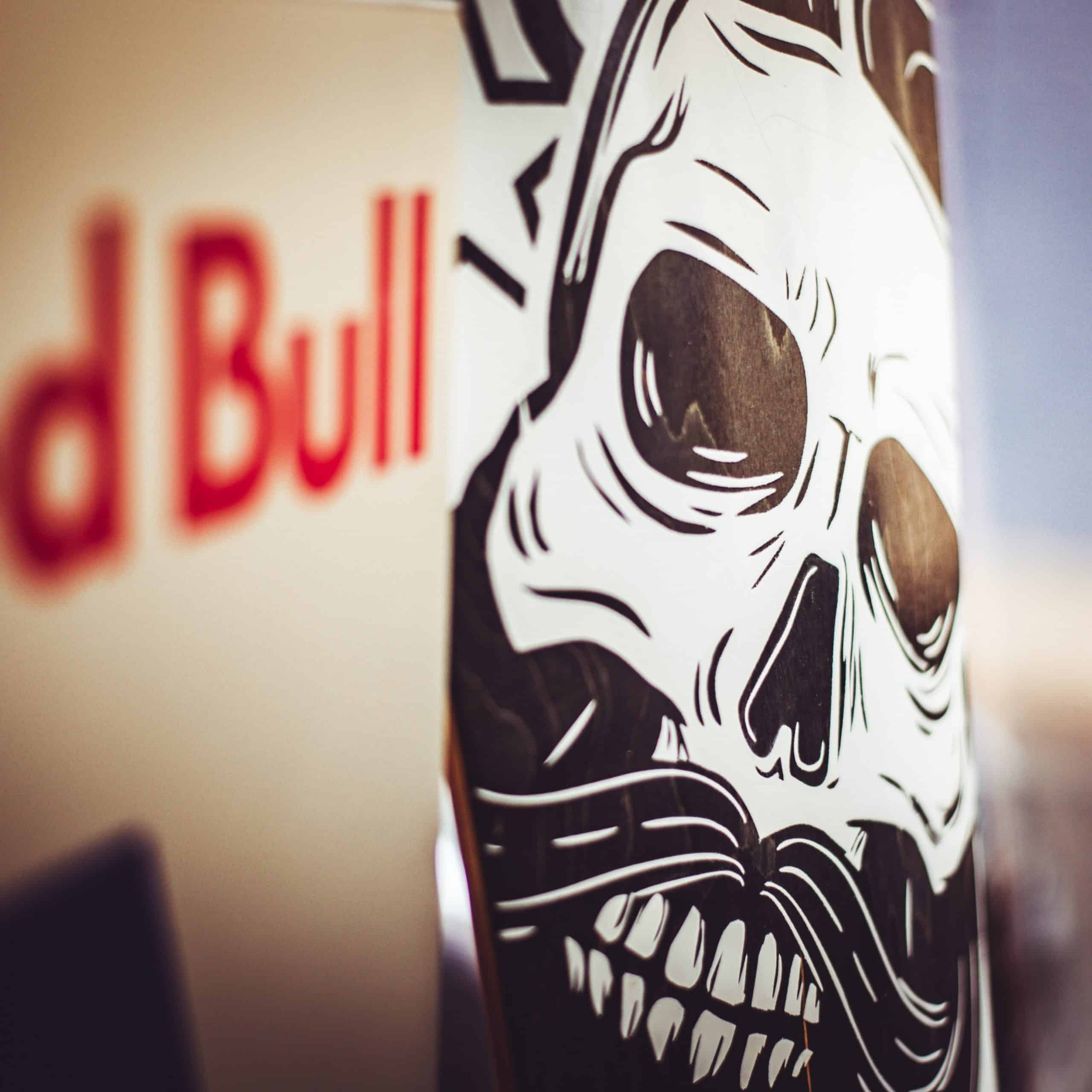
Are Energy Drinks Bad For The Heart?
Any amount of excessive caffeine is bad for normal humans. A cup, or three, of java during a trying workday isn’t going to hurt you. In fact, it may deliver some valuable health benefits (23). However, even the most passionate barista would caution you from indulging in excessive caffeine intake.
Caffeine and sugar in long-term combinations can create an even wider host of effects, like type-2 diabetes or heart issues (24). In many cases, even young people can be affected by a rise in anxiety, blood pressure, and heart problems (25). Some of the most popular energy drinks don’t even list the full amount of caffeine in their products, instead opting to describe the drink as only an ‘energy blend (26).’
Events of atrial fibrillation have been known to be reported after energy drinks consumption (27). This means that your heart experiences irregular beat patterns. These can lead to further conditions like stroke or blood clots (28).
The amount of taurine and ginseng found in popular energy drinks is far below the amount expected to deliver either therapeutic benefits or adverse events. Though they’re meant to be part of the main ingredients of the ‘energy blend,’ it would take much higher levels to be effective as a supplement.
Are Energy Drinks Bad for Skin?
There’s much debate over caffeine and its effects on your skin. Some popular skin cream brands contain caffeine as an ingredient that both tightens and brightens your skin though I have a feeling that you’re not going to be rubbing your beverage on your face.
Some research shows white women who drink moderate amounts of java have lower levels of naturally occurring rosacea, or the redness present in cheeks and nasolabial areas (29). This may be attributed to the antioxidants of flavonoids in the coffee itself, and not the caffeine. More research is needed to see if there are skin benefits, if any, associated with energy beverages.
However, the large amount of sugar will discount any sort of effect you might be getting from the caffeine in your energy drink. Natural sugars like glucose (and even fake ones) link up with amino acids that help support the collagen in your skin. When the amino acid is blocked by the sugar, it’s unable to bind with the collagen.
Collagen and elastin are the body’s way of staying young-looking; it keeps the skin plump and dewy. When sugars combine with these cells, they produce ‘advanced glycation end products’ (AGEs) (30).
AGEs can affect lots of your body’s systems, but it will first show in your face and skin. Loss of brightness, reduced-fat under the eyes, and a poor overall color will contribute to looking old before your time. Collagen is also what keeps you from seeing fine lines or wrinkles, so damaging these cells is a recipe for crow’s feet (31).
Are Energy Drinks Bad for Your Digestive System?
Consuming energy beverages seem to be dangerous, not only for your skin but for your heart. But before the drink reaches your vital organs, it must pass through the stomach and digestive tracts. This is where it can start to do irreparable damage.
Research in the Saudi Market tested its most popular energy beverage,’Power Horse.’ In control groups, rats were consuming energy drinks daily. As a result, their gastrointestinal system was compromised. Their stomach cells were partially damaged, and more importantly, their pancreas function was inhibited (32).
The pancreas is the body part responsible for creating insulin, the ‘juice’ that mitigates the consequences of sugar on the body. We have mentioned before the disastrous effects that overconsumption of sugar can have on the body and its systems.
But the pancreas is so much more than just an insulin maker. It produces a number of important enzymes and hormones essential to healthy digestion (33). In fact, the only way to break down carbohydrates and fats is with the pancreas’ specialty enzymes. If the pancreas is overloaded with making insulin, it can’t do the rest of its job.
This is why sugar can prevent us from absorbing all the nutrients in the food. If the digestive system can’t process fats, then we don’t get lots of essential vitamins. You’ll also end up with…less than favorable trips to the bathroom. If you’ve ever felt queasy after drinking energy drinks, you’re not alone. 5 percent of the people interviewed reported nausea and diarrhea.
When the body has issues with breaking down food correctly, your energy levels will suffer. You may be drinking energy drinks in order to pressure your body for a boost of function, but in the long run, you may be setting yourself up for more exhaustion.
Are Energy Drinks Bad for Your Teeth?
We often forget one of the most important parts of the digestive system starts at the top: the mouth. Oral care is vital for overall health, with poor attention to gums and teeth being a possible link to heart disease.
One unintended side effect of energy drinks could be a degradation of tooth enamel and possible staining. The long term damages of sodas, energy drinks, and other sugar-based beverages are well known. I think we all remember the teacher who put a nail into a bottle of soda, and by the next day, it was gone.
Whether old Mrs. Jenkis knew it or not, the pH of the energy drinks could be the thing that’s killing your teeth. Red Bull has a pH of 3.3, whereas most tap water is around a pH of 7 (34). This extreme acidic liquid can destroy the precious enamel, the white covering that keeps the insides of your teeth safe.
Once it’s worn away, the staining begins to show. The inside of teeth is naturally more yellow than the outside, so thin enamel can show this color through. Surface stains can also be compounded through daily use. Some energy drinks are bright, fluorescent colors in addition to being acidic. This combination can wreak havoc on your teeth and create permanent stains.
Recap:
Though energy beverages can have adverse effects due to caffeine overload, the main harm seems to come from the amount of sugar contained in the drinks. Just like soda, over time, energy drinks can harm teeth, create gastrointestinal issues, raise blood pressure, and cause your skin to age prematurely.
Dangerous Side Effects: Who’s at Risk?
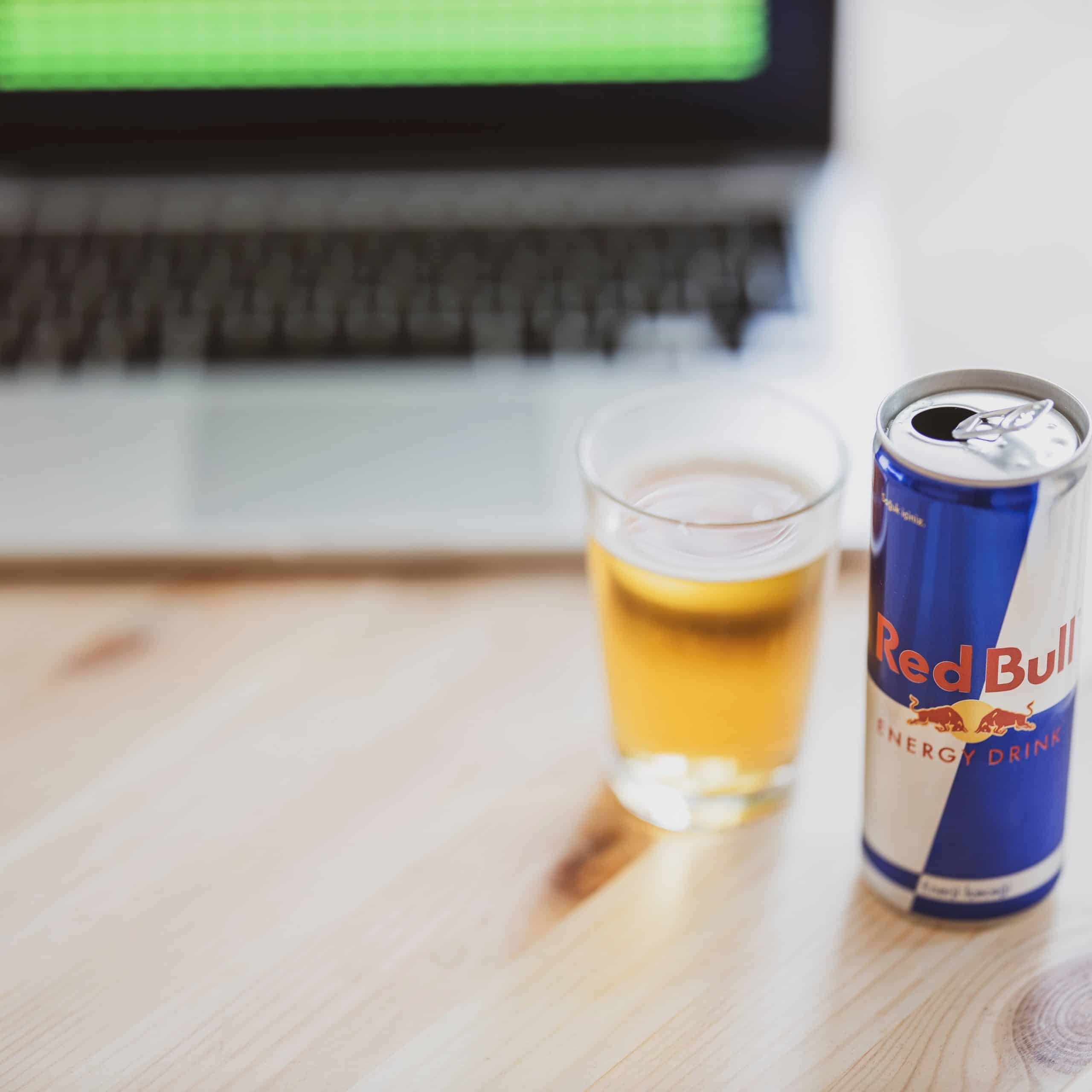
Anyone can consume a beverage, and there are many reasons that someone may drink energy drinks.
Even without intending to, children or parents can purchase energy drinks based on their packaging and bright colors without knowing the associated health risks. Paying close attention to brand packaging is important when choosing the right drinks for your kids.
A young teen or college student may buy a pack to get them through finals week or cram an all-night study session.
Adults could try consuming energy drinks instead of coffee, thinking the ‘energy blend’ or added vitamins are actually healthy.
In short, everyone has a risk of side effects from energy drink consumption. Though some people may only use them infrequently, it’s those who habitually are consuming energy drinks that may end up with health effects.
What Are Health Risks for Teens?
I remember the soda machines in my high school. I never quite understood why coffee and tea were banned for young people, but a sugary, caffeinated soda first thing for breakfast was acceptable. The next year, there were energy drinks vending machines!
Luckily for my classmates, in the senior year, there were some changes. The vending machines no longer carried energy drinks, and sodas had a time lock so they could only be bought after the school day officially ended. Even after learning about the dangers of sugar, students would risk missing the bus so they could grab a soda before leaving school.
Clever daily exposure can make kids more likely to have drinks, and they often learn to abuse the benefits. They learn quickly that the caffeine and sugar spike may keep them awake in homeroom, but don’t associate the anxiety or resulting sleep issues.
Students can end up in a spiral of addiction, where one drink to wake them up becomes a daily necessity (35). The teenagers that fall asleep in class will reach for an energy drink, which will then make it difficult to fall asleep and have restful REM at night. This leads to a second drink the next day to wake up, and the cycle continues.
Advertising to Young Adults
Young teens may also be highly susceptible to advertising, especially where high-risk behavior was posited as a great model (36). Energy drinks brands such as Red Bull advertise to 20 somethings as a clever and calm way to get your ‘wings’. Others, like Rockstar and Monster, are targeted to young people as a way to emulate the fast-paced lifestyle of celebrities.
Young people had their preferences in brands, according to one study, which often correlated to their choice of activity. Sports players and gamers were the most likely to use energy drinks (37).
Many students believe that energy drinks are a great way to stay alert and do better in school. Also, energy drinks have a reputation as being ‘fun’ or a way to elevate mood. Many students reported headaches and difficulty breathing as a direct result of consuming energy beverages (38).
This is why a number of areas have banned the sale or advertisement to people over 18, the way we market tobacco or alcohol (39). If the products aren’t available, we can help protect children and help prevent problems.
What Are The Health Risks For Adults?
Most people who use energy drinks are teens to young adults under 30. So, how bad are these energy drinks for you? You’re in the prime of your life, and just need a little extra boost to get through the day.
Even in healthy young people, any use could still exacerbate a pre-existing but dormant heart or blood pressure condition. Those who choose to consume energy drinks every day as a replacement for a cup of java could develop problems with weight and health.
Alcohol and Energy Drinks
Adults who consume energy beverages may also do so with alcohol (40). This can increase the effects of both, with disastrous results. In a several cases, severe heart conditions landed people who consumed energy drinks in the hospital (41). The health effects have also caused some people to die from overindulgence.
Firstly, drinking energy drinks give you extra energy…what a surprise! When this is combined with alcohol, it can lead to an increased desire for a second, third, or more rounds of alcohol (42). Excessive caffeine intake can increase the effects of alcohol, and it can be possible to drink excessively without meaning to.
Alcohol is a depressant and vasodilator, and caffeine is a stimulant and vasoconstrictor. These two don’t cancel each other out. Unfortunately, it means that they can both affect the body in different ways, which can prevent you from regulating the internal systems.
Students who reported high energy drinks consumption were also more likely to have problems with cigarettes, high alcohol use, and abuse of prescription drugs (43). Young adults who have issues with alcohol can also have concurrent problems with energy drinks since caffeine and sugar can easily become an addiction (44).
Alcohol alone can make you dance like you never took a lesson in your life, but adding caffeine to that mix makes for baby elephant levels of clumsiness. Your locomotor activities, or your ability to precisely control your body, are hampered by alcohol. The addition of caffeine increases your body’s lack of balance.
Pregnancy and Caffeine
While there are few studies on pregnancy and energy drinks, there’s a large amount of information on caffeine in general as it relates to baby growth and young childhood development.
Effects on Pregnancy and Babies
During pregnancy, your heart rate increases (and subsequently, so does your blood pressure) because you have to move the blood for both mother and baby. Adding a careless amount of caffeine could cause you to go into hypertension(extremely high blood pressure).
Babies born to mothers who used caffeine habitually throughout pregnancy had shorter pregnancies on average (45). They had much lower birth weights and were shorter than their peers. This is physical long term proof of the effects of energy drinks on the body, even if it only relates to the caffeine.
Besides heart rate complications, some energy drinks contain Ginkgo Biloba as a stimulant (46). Pregnant women should avoid Ginkgo as it can prevent platelets from forming, causing the mother to bleed excessively during birth. With the addition of other ingredients in the ‘energy blend,’ it’s unknown what the side effects of energy drinks are for expectant mothers.
Post Birth Behaviors
At the moment, it seems that young children don’t suffer post-birth to most mothers who use caffeine (47). Some children are reported to be hyperkinetic (exhibiting frenetic amounts of energy) or experience ADHD (Attention Deficit Hyperactivity Disorder) (48).
Luckily, these cases are reported only in young mothers who regularly drink 10 cups of java a day. If you’re drinking many energy drinks a day, it could cause your child not to reach their maximum growth potential. If you consume more than two or three, a mother could set their child up for future behavioral issues.
What Are The Health Risks For Children?
When comparing kids’ hearts to adult ones, it’s not just size that you must take into account. Healthy adult hearts can beat around 100 beats per minute (bpm) during strenuous activity, such as working out. Kids, on the other hand, can reach up to 220bpm during the same exercise and still be well within the normal range (49).
Even in children, caffeine is a stimulant drug. In tests where children were given a small dose of caffeine before physical activity, participants measured a significant blood pressure increase. Oddly enough, all the children also had lower heart rates.
There is very little research about the dangers of children consuming energy drinks. This is partly because researchers feel it’s morally difficult to put children into danger. We already know of lots of poor health effects and problems in adult users of energy drinks, and so assume that those dangers will translate exponentially to children.
Recap:
While adults can experience painful symptoms related to long term use, pregnant mothers can pass those symptoms along to their children. While not all children will feel the effects, it’s worth noting that there’s a significant decrease in birth weights and baby size regardless of the type of caffeine ingested. From coffee to energy drinks, expectant moms should take care.
Withdrawal Symptoms
Did you ever run so late that you couldn’t grab one of the caffeinated drinks from the corner store and showed up to work with a splitting headache? Congratulations! You’re one of the billions of people who have experienced caffeine withdrawal. Its symptoms are so severe that it is listed in the Diagnostic and Statistical Manual of Mental Disorders (50).
If you find yourself:
- Drinking many energy drinks a day.
- Becoming irritable when you can’t consume caffeine.
- Spending between 15-30 dollars on energy drinks.
- Requiring energy drinks before focusing on a task.
- Needing to consume more amounts to feel the same caffeine effects.
You may have some problems with caffeine and an addiction to energy drinks (51). Most people who consume caffeine regularly develop a tolerance, so that the effects aren’t as strongly felt as they once were. You may find that you need two Red Bulls to wake you up, when before it was only one.
Quitting Caffeine-Cold Turkey or Slow?
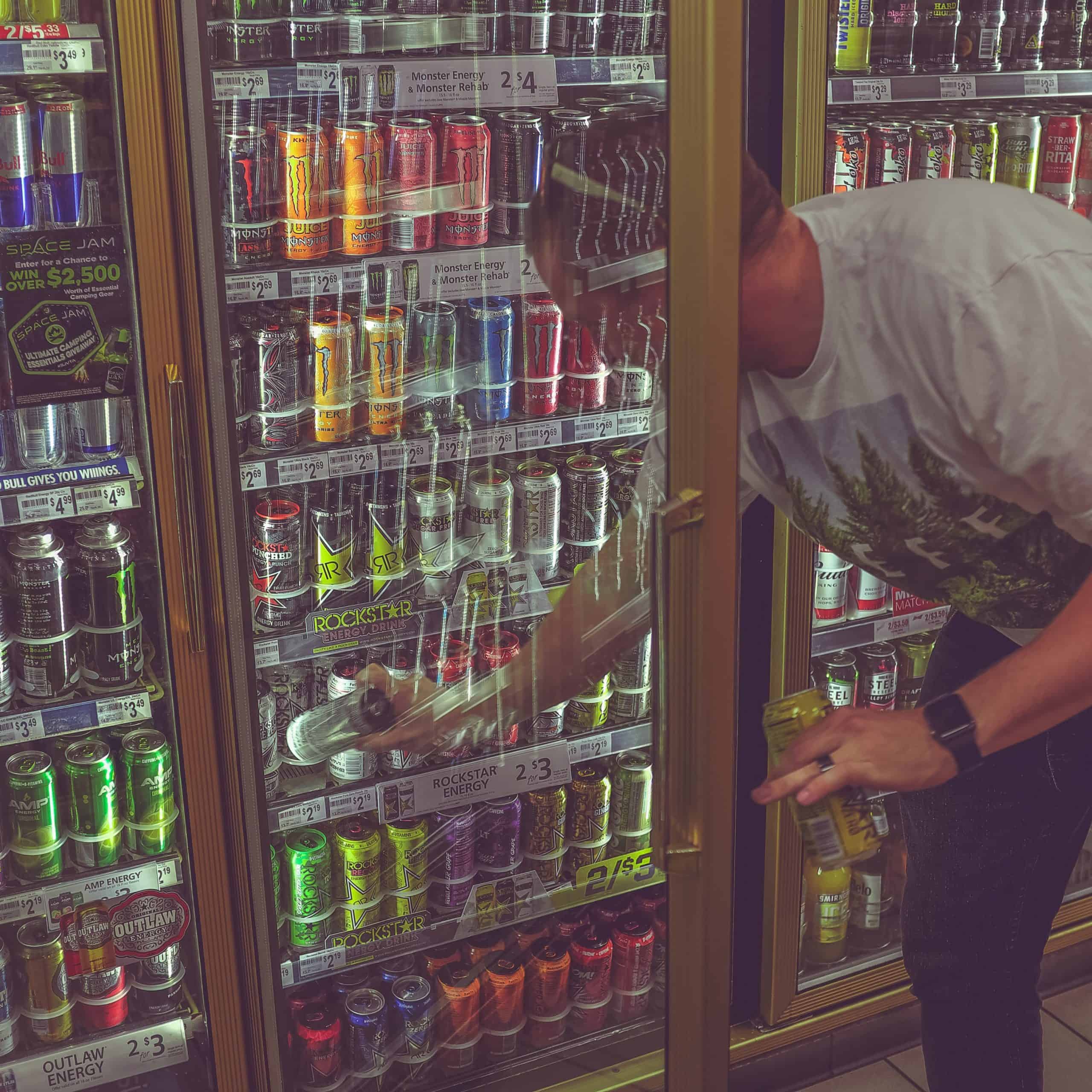
If you’re consuming many cans of energy drinks a day, don’t stop all at once! You may experience more severe symptoms that will make you jump right back on the bandwagon. Withdrawal symptoms can include headaches and nausea, and you will be sorely tempted to fix it quickly with caffeine.
Instead, try to gradually reduce your load over a week or two (52). This might mean that you’ll be tired for a few days, but eventually, you won’t need the stimulation as your body recovers.
Replace the beverage with water, which will help flush the old caffeine from your adrenoreceptors. As it wears off, you’ll most likely begin sleeping better and having more natural energy.
Is There Anything Healthy About Energy Drinks?
There are so many ‘all-natural’ and purported health benefits of the ingredients that make up these products. Young people can feel pressure to enjoy the lifestyle associated with consuming energy drinks, but do the dangers of energy drinks outweigh the benefits?
Caffeine’s Benefits in the Body
Caffeine blocks your ability to feel tired, making it easier to expend energy over a short period. Research has shown it’s possible a slight boost of caffeine before serious exercise can help improve your performance. It won’t help you sink more three-pointers, but it might help you play for longer, allowing you to try for more (53).
Those who wish to feel the maximum benefits should avoid caffeine beforehand so that the brain’s receptors are clear and unstressed (54). Since physical activity already raises the heart rate, using a drug such as caffeine can overly stress the body’s systems. Take caution, not to overdose to prevent heart palpitations or breathing issues.
There’s also evidence that caffeine can aid in fat loss. Part of this probably correlates to the information above, that caffeine could allow you to work out for longer without feeling tired. Energy drinks can also act as an appetite suppressant since caffeine keeps you from feeling hungry (55). Fat loss would be a benefit of caffeine, but the sugar in an energy drink will outweigh it (56).
What About All Those ‘Herbal Stimulants’ and Vitamins in My Energy Drink?
Consuming energy drinks can seem like a convenient way to get a large number of health effects. Their ingredients imply that they contain essential vitamins and minerals for a healthy body.
Natural antioxidants can be found in guarana and taurine (57, 58). Even vitamin B is supposed to be great for your health. In theory, all these ingredients together would make a potent health tonic. But these drinks also have massive levels of sugar that can mitigate what benefits you may have reaped.
As mentioned before, some levels are too low to be effective. Other ingredients, like vitamin B, there’s an overload. Since these vitamins don’t stay in your body for long, it’s useless to consume more than your recommended daily limit.
Any health claims by Red Bull, Monster, or other energy drinks are exaggerated at best and flat out lies at worst. The pressure people might feel to indulge in ‘health beverages’ should never be felt towards energy products.
Feeling Good
You shouldn’t feel bad for needing a little extra jolt of caffeine (or even sugar) to feel good. However, if you’re prone to anxiety, high blood pressure, or more, you should take caution if you consume a popular energy drink.
You should be cautious if you have any of the following pre-existing issues:
- Heart palpitations.
- High blood pressure.
- Diabetes.
- Anxiety.
- Migraines.
- Pregnancy.
Recap:
Though there have been some reported health benefits about the ingredients in energy drinks, most are at levels too low to affect you in a positive way. Quitting an addiction to energy drinks is a great way to improve your health. Now that you know how much caffeine is in energy drinks, will you stay away?
Summary / Bottom Line
If you’re using one single energy drink to fuel an all-night study session, you will most likely not have adverse effects. Some users have reported adverse health effects, but most of these are from long-term or abusive use.
On that same note, it can be dangerous to combine energy drinks and alcohol or become dependent on them. People with higher predispositions to addiction and abuse should take caution when consuming energy drinks.
Those with existing conditions like high heart rate, sensitivity to caffeine, or high blood pressure should take caution when drinking energy drinks. Those with diabetes or hypoglycemia conditions should most likely never consume them.
The health risks far outweigh the benefits of long term use. When you consume energy drinks, you’re opening yourself up to poor health effects. Energy drinks are bad for you, even though the pressure to drink them may be enticing.



